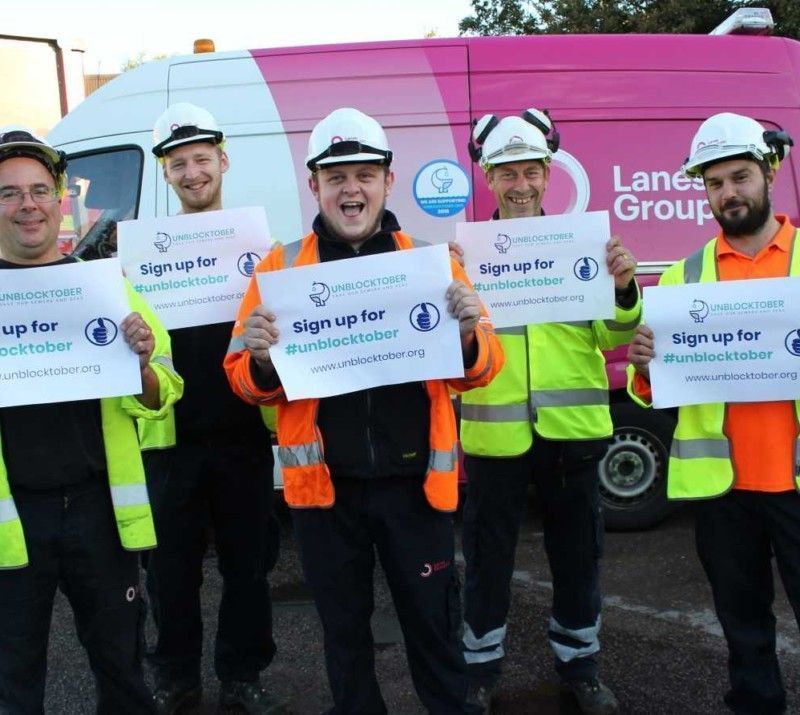Help us beat plastic pollution plea from drainage engineers

Drainage engineers working across the West Midlands are flushing out support for Unblocktober, the world’s first awareness month for protecting the UK’s sewers and seas.
The campaign is challenging the British public to make small changes to their kitchen and bathroom habits for the whole calendar month of October to establish new routines that will be much less harmful to the environment.
There is growing public concern about plastic pollution. A study in Science journal estimates between 1.1m and 8.8m tonnes of plastic enters our oceans every year. Yet people in the UK flush plastic products down the loo in vast volumes.
Unblocktober has been set up by national drainage and utility specialist Lanes Group plc. It is backed by Severn Trent Water and the Love Water campaign, which involves more than 40 organisations, and is led by the Environment Agency and Water UK.
During October, householders and businesses are being asked to make extra efforts not to dispose of fats, oils or grease (FOG) down sinks into drains or flush items like wipes, nappies and sanitary products, which contain plastic, down toilets.
Misuse of drains and sewers causes tens of thousands of blockages, including giant fatbergs, leading to sewer flooding that can devastate homes and businesses. It also releases plastics into water courses, which end up polluting oceans.
The Brummie drainage engineers calling for public backing for Unblocktober are based at Lanes Group’s depot on Minworth Industrial Estate. They see the harm caused by FOG and, especially, wipes in drains every day.
Emergency drainage engineer Keaton Burbidge said: “We see all sorts being flushed down drains, including nappies, razor blades, bandages and condoms. But the biggest problem is wipes.
“I went to one blockage at a house recently and the owners admitted they flushed cleaning wipes down the loo. They don’t act like toilet paper and they contain plastic which can stay in the environment.”
CCTV drainage survey engineer Nathan Parkes said: “Cotton buds are some of the worst things. They get stuck in pipe joints and are like teeth that catch wipes and other stuff and that creates the blockages.”
Clean water and excavation engineer Paul Dunn said: “I’m hoping Unblocktober will raise awareness about the damage people are causing. If people make simple changes to what they do, they can help prevent it.”
Helen Wakeham, Deputy Director of Water Quality at the Environment Agency, said: “Most people agree that water is a precious resource. But, too often, we take it for granted. What we do at home can have a direct effect on the rivers, lakes and beaches we all care about.
“As part of the Love Water campaign we are urging people to use water wisely, protect water quality and think before pouring cooking oil down the drain or flushing a wet wipe away. By taking these simple steps, we can all play our part to reduce blockages of drains, as well as pollution of our rivers and seas.”
Michelle Ringland, from Unblocktober, said: “Unblocktober is all about driving behavioural change – which is a key objective shared by all of our partners.
“We know from our own research that the majority of the public (63%) consider themselves to be ‘very aware’ of what should and shouldn’t go down the drain, and yet almost half (48%) of the nation still pour fat and oil down their sinks. So, at this point, we need to do more than just raise awareness and educate, we need to change habits.
“Unblocktober is the ideal way of encouraging people to make a series of small, achievable changes to their behaviour that will make a big difference to the environment.”
Participants can sign up and find more information at unblocktober.org.







